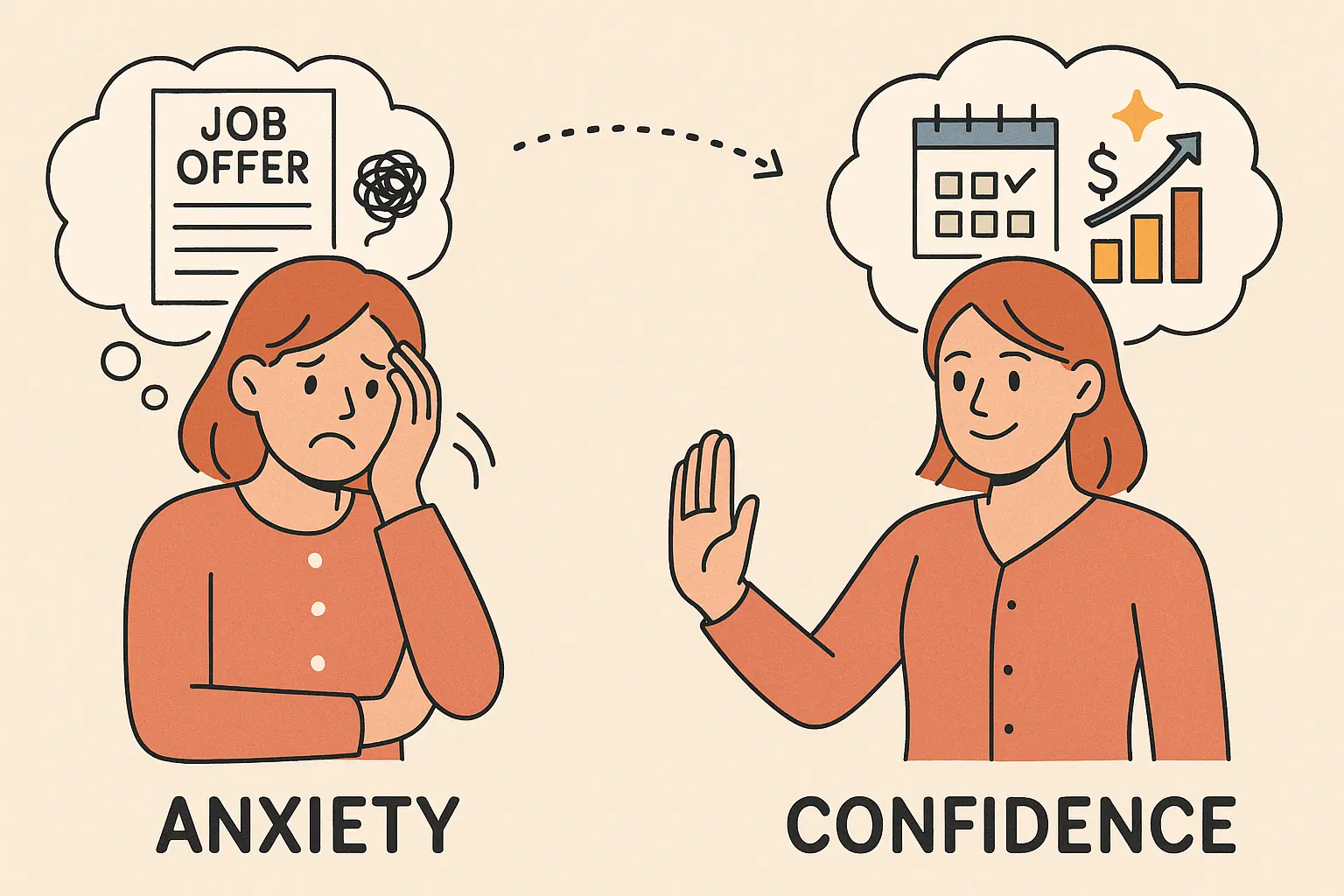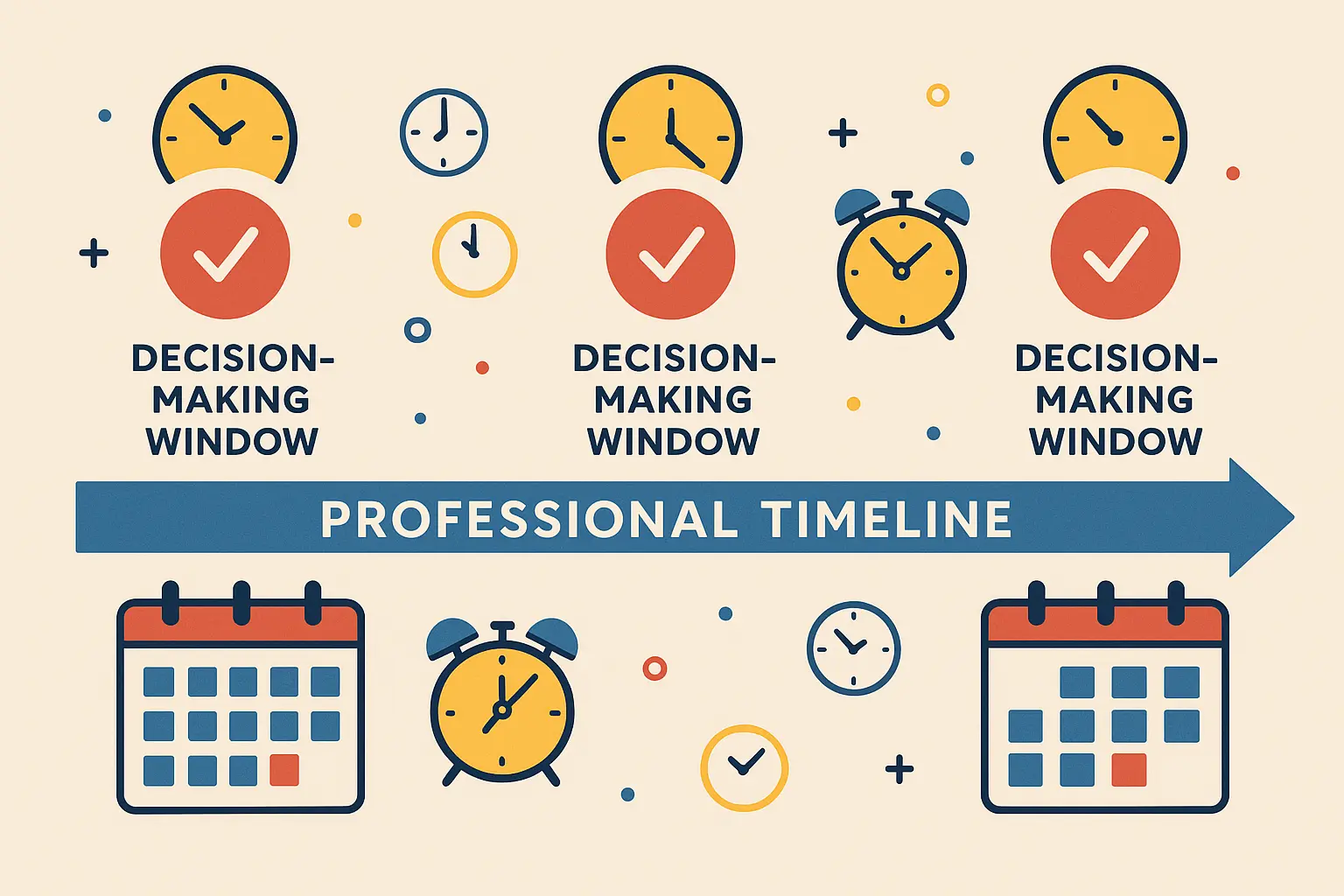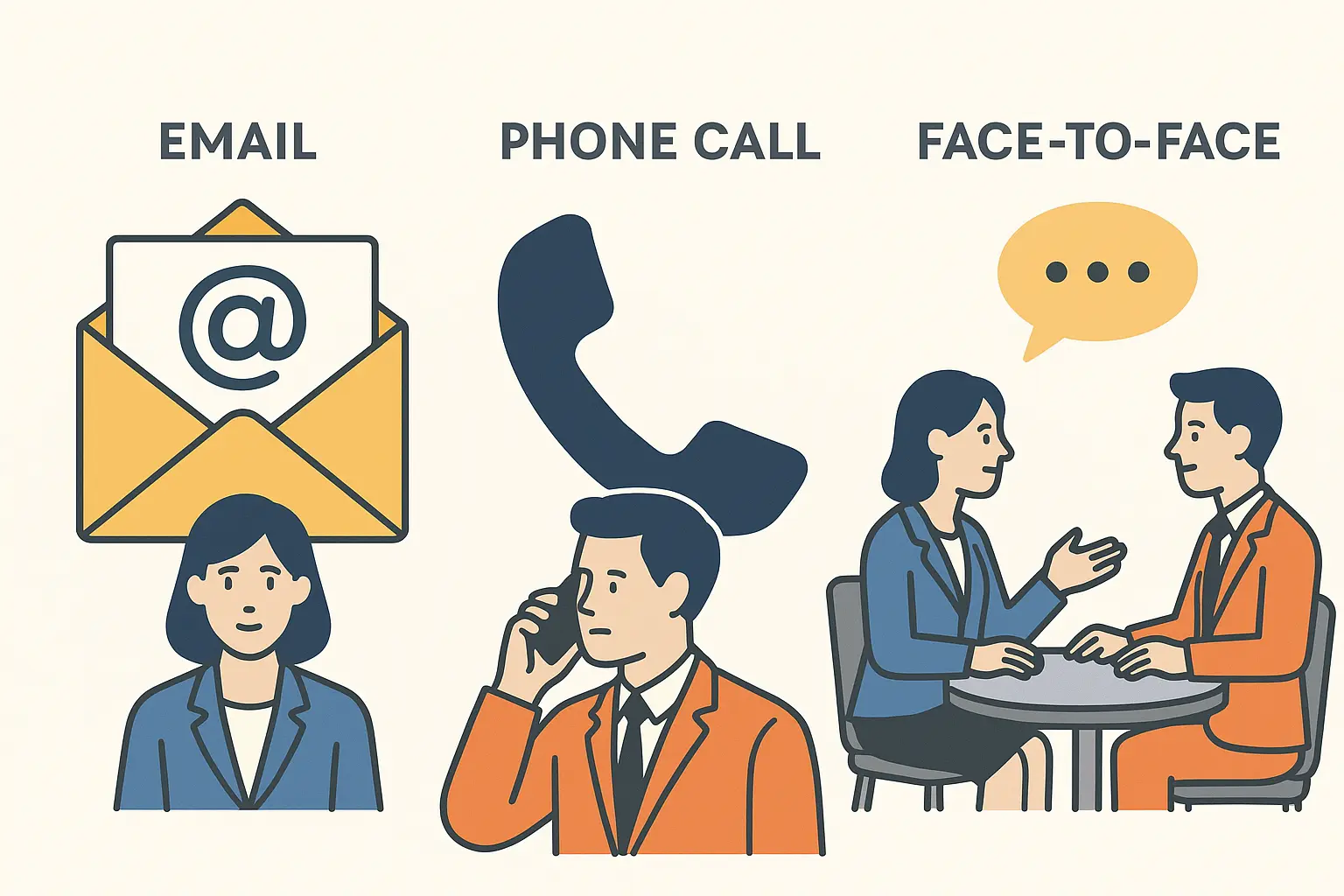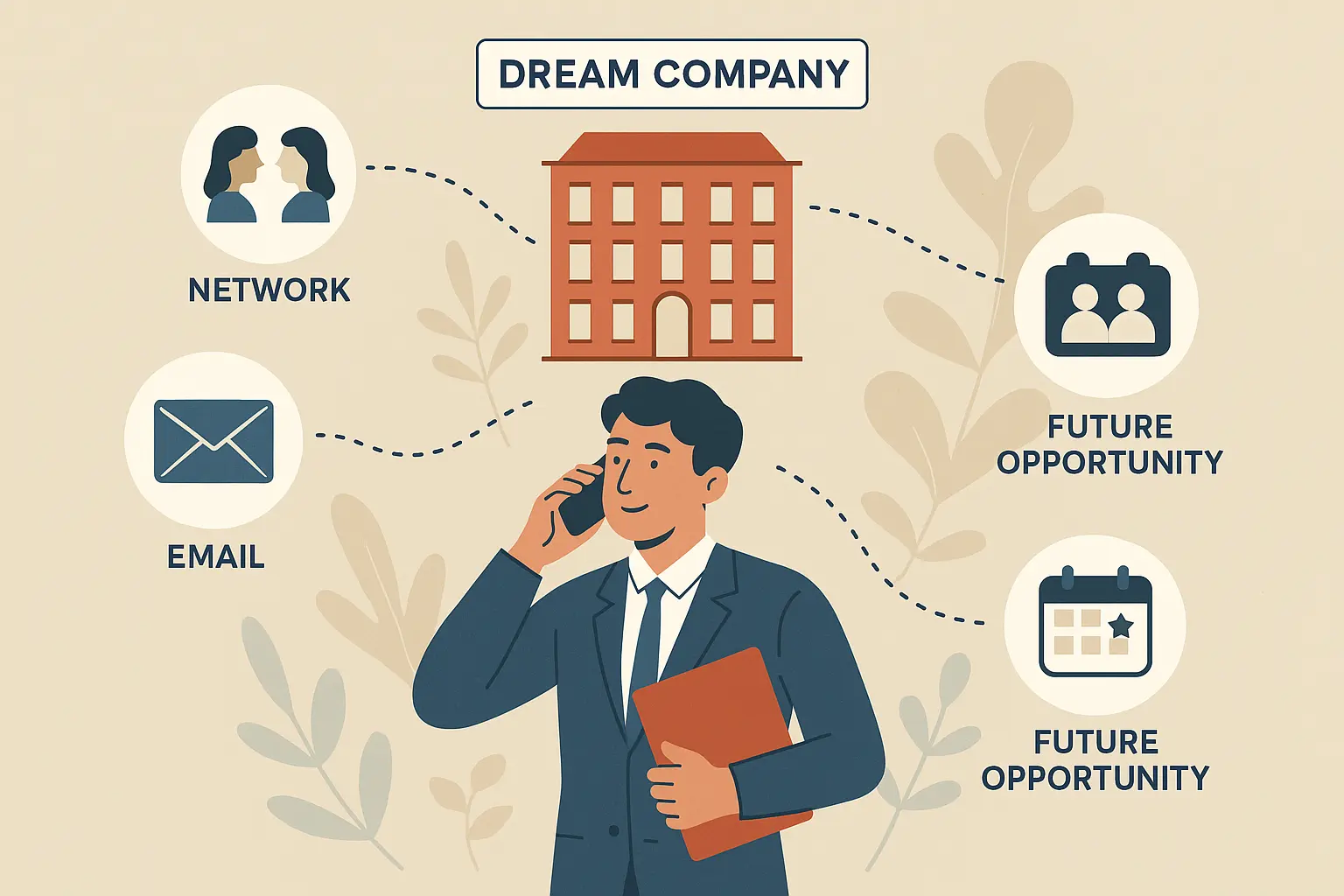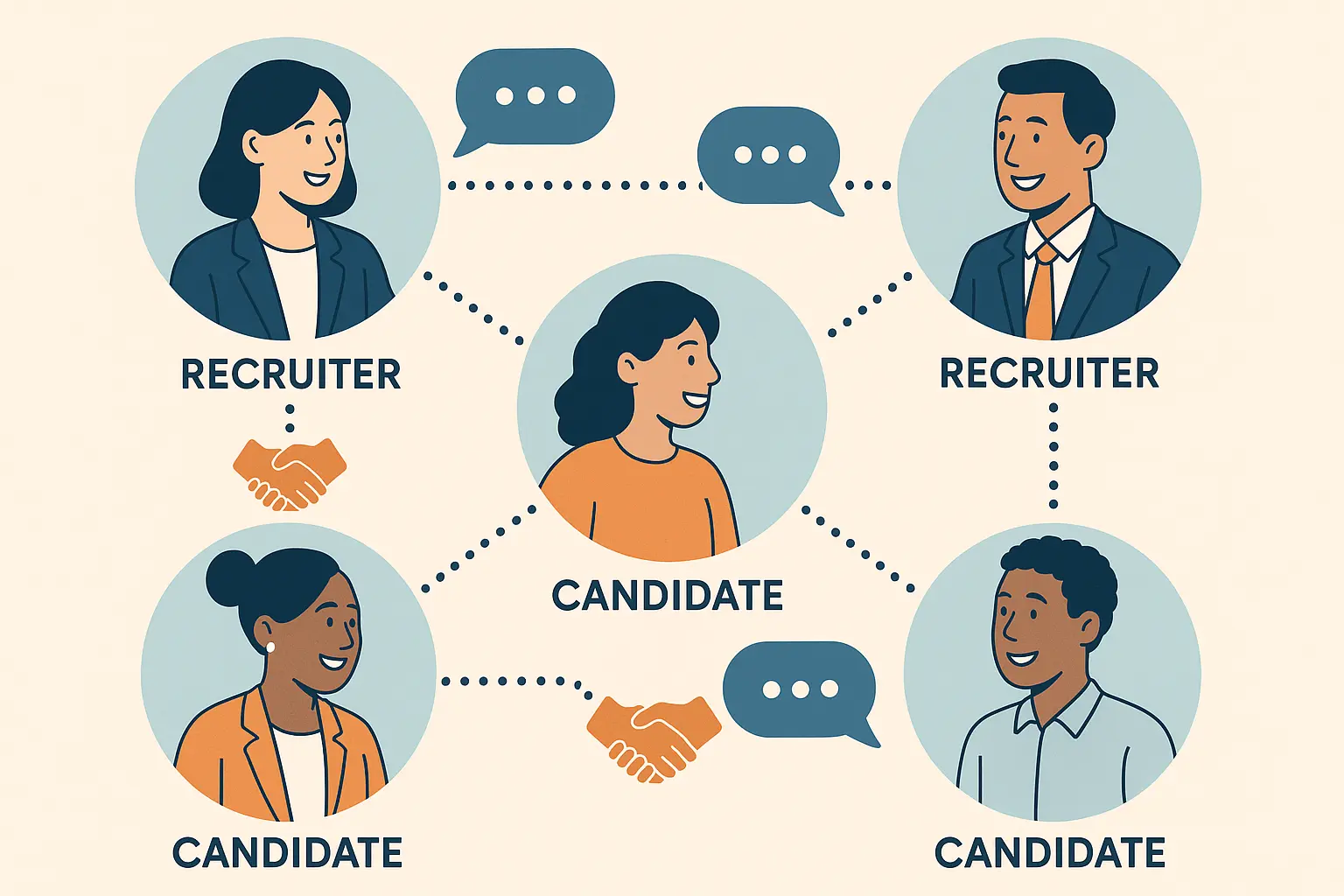How to Decline a Job Offer Without Destroying Your Professional Reputation (And Why It’s Actually a Power Move)

Let’s be honest—saying no to a job offer feels awful. Your brain immediately goes to worst-case scenarios: What if I never get another chance? What if they think I’m ungrateful? But here’s what I’ve learned after years of career coaching: knowing when and how to say no is one of the most valuable skills you can develop.
I’ve watched countless professionals accept mediocre offers out of fear, only to find themselves job searching again within months. Meanwhile, those who turn down opportunities strategically often land better roles with companies that truly value their skills. According to a Glassdoor report, over 17% of people rejected job offers in 2019, showing that declining opportunities is more common than many realize.
This guide walks you through the psychology, timing, and communication strategies for how to decline a job offer professionally while keeping relationships intact for future opportunities.

Why Turning Down Offers Feels Like Career Suicide (But Isn’t)
Why does turning down a job feel like you’re making a terrible mistake? Because your brain is wired to avoid rejection and seek approval. That pit in your stomach when you’re about to say no? Totally normal. The key is recognizing these feelings for what they are—emotional reactions, not career guidance.
Your brain creates elaborate scenarios about disappointing the hiring manager or missing your only shot at success. But here’s the reality: companies budget for candidate decisions. They know talented people have options and choices to make.
The Guilt Trip Your Brain Puts You Through
I’ve watched professionals torture themselves over rejecting offers, convinced they’re somehow betraying the hiring team. The truth? Companies expect some candidates to decline—it’s built into their hiring process and budget.
When you’re learning to turn down offers, remember that hiring managers have seen this before. They’d rather have someone decline professionally than accept reluctantly and leave within months.
FOMO and the “What If” Spiral
Fear of missing out can make you second-guess perfectly reasonable decisions. The “what if this was my only chance” thinking ignores reality—good opportunities come to people who know their worth and aren’t afraid to wait for the right fit.
I’ve seen professionals accept mediocre offers out of fear, only to watch better opportunities pass by because they were stuck in the wrong role. Trust your instincts when something doesn’t feel right.
Why Companies Actually Respect People Who Say No
Here’s something that might surprise you: companies often respect candidates who decline thoughtfully more than those who accept immediately without questions. It signals that when you do say yes, you mean it.
Sarah, a marketing director, declined a VP role at a growing startup because the company culture didn’t align with her values. Her experience highlights that knowing how to decline a job offer thoughtfully can actually strengthen your professional reputation Six months later, the same CEO reached out with a different opportunity at his new company that was a perfect fit. Her professional decline had actually impressed him and kept her top-of-mind for better opportunities.
Reframing rejection as smart career management changes everything. When you view saying no as demonstrating clear career vision, these conversations become opportunities to strengthen your reputation rather than damage it.
Timing Your Response Like a Pro
Timing is everything when you’re learning how to decline a job offer. Take too long, and you look indecisive. Respond too quickly, and you might make the wrong call. Here’s how to find that sweet spot.
The 24-48 hour rule gives you enough time to process the opportunity thoroughly while showing respect for the employer’s timeline. This window allows you to sleep on the decision, discuss it with trusted advisors, and evaluate how the offer aligns with your career goals without keeping employers hanging.
Why 24-48 Hours Actually Works
This window hits the sweet spot for both parties. You get time to process without the pressure of an immediate response, and employers see that you’re taking their offer seriously enough to consider it carefully.
Sometimes you need additional time due to competing offers, family discussions, or complex decision factors. Most employers will grant reasonable extensions if you explain your situation professionally and provide a specific timeline for your response.
When You Need More Time (And How to Ask for It)
“I appreciate the offer and want to give it the consideration it deserves. Would it be possible to have until Thursday to provide my response?” This approach shows respect while buying you the time you need.
Be specific about when you’ll respond and stick to that commitment. Vague requests for “a few more days” create uncertainty and frustration.
Reading the Room on Deadlines
Job offers come with both explicit deadlines (“we need an answer by Friday”) and subtle urgency based on company needs. Learning to recognize these signals helps you respond appropriately without rushing your decision.
According to Josh Bersin’s research, companies take an average of 44 days to hire, with some roles sitting empty for 2 to 3 months, which explains why timing becomes such a critical factor in the hiring process.
Pay attention to the language they use. “We’d love to have an answer soon” is different from “We need a decision by end of week to move forward with our hiring process.”
Juggling Multiple Offers Without Losing Your Mind
Managing situations where you’re holding offers while waiting on preferred opportunities requires careful balance. You need to be honest about your timeline without stringing employers along.
According to a recent survey by Gartner, nearly half of employees hired over the last 12 months had received two additional job offers, making multiple offer management increasingly common.
Marcus received offers from three companies within the same week. Company A needed an answer in 48 hours, Company B gave him a week, and he was still waiting on his dream job at Company C. He called Company C to explain his timeline, which prompted them to accelerate their process. By being transparent about his situation, he secured his preferred role while maintaining positive relationships with all three companies.
How to Actually Communicate Your Decision
Should you call, email, or meet in person? It depends on the relationship you’ve built and how formal the company feels. Most of the time, a thoughtful email does the trick.
Understanding proper communication methods is as important as knowing ATS resume format requirements—both demonstrate your professional competency and attention to detail.
Email: Your Go-To for Most Situations When Learning How to Decline a Job Offer
Written rejections serve as formal documentation while allowing you to craft thoughtful messages that maintain warmth and professionalism. The key is balancing efficiency with personality, ensuring your email feels genuine rather than template-driven.
Your subject line should immediately communicate your decision without being abrupt. “Thank you for the opportunity – [Your Name]” or “Following up on [Position Title] offer” works well. Avoid subjects that leave the recipient guessing about your decision.
Here’s what every decline email needs:
- Clear, professional subject line
- Genuine gratitude for the opportunity
- Clear statement of your decision
- Brief, diplomatic reasoning
- Opening for future opportunities
- Professional closing
Remember, less is often more. You don’t need to write a novel explaining your decision—a concise, respectful message works best.
Phone Calls: When You’ve Built Real Rapport
Verbal declinations work well when you’ve built rapport with the hiring manager or when the role involved extensive personal interaction. Phone calls allow for real-time clarification and can soften the blow through tone, but they require more preparation to handle potential pushback.
Write down three key points before calling: your gratitude, your decision, and your reasoning. Having these anchors helps you navigate the conversation without sounding like you’re reading from a script.
Employers might try to address your concerns or make counter-offers during phone conversations. “I appreciate you trying to address my concerns. Can I take some time to consider this new information and get back to you tomorrow?” This gives you space to think without seeming dismissive.
Face-to-Face: For High-Stakes Situations Only
In-person declinations are reserved for senior roles, close professional relationships, or situations where personal interaction adds significant value. These meetings require the most preparation but can strengthen professional bonds when handled skillfully.
Consider face-to-face meetings for C-level positions, roles where you’ve built strong relationships with multiple team members, or situations where you want to maintain particularly important professional connections.
Come prepared with thoughtful questions about the industry or company direction. Show genuine interest in their perspective and insights, even though you’re declining their specific opportunity. This approach can turn rejection meetings into valuable networking sessions.
Writing Messages That Keep Doors Open
The secret to maintaining relationships through rejections? Start with authentic gratitude, provide appropriate reasoning, and end with forward-looking statements.
Gratitude That Actually Means Something
Move beyond “thank you for the opportunity” to mention specific aspects that impressed you—perhaps the team’s expertise, the company’s mission, or insights you gained about the industry.
“The conversation with your engineering team about scaling challenges really opened my eyes to problems I hadn’t considered before” demonstrates engagement and leaves a positive impression.
Recognize the time, resources, and energy the company put into evaluating your candidacy. “I know the team spent considerable time walking me through the product roadmap and answering my questions about the technical challenges ahead” shows you were paying attention and valued their effort.
Explaining Your Decision Without Oversharing
Provide honest but diplomatic explanations that satisfy employer curiosity while maintaining professional boundaries. Focus on fit and alignment rather than criticism, and avoid sharing personal details that might create awkwardness.
Here’s how to frame common reasons professionally:
Career Direction: “Pursuing opportunities more aligned with my long-term goals” instead of “This role seems boring”
Compensation: “Accepting a position that better meets my current needs” instead of “You’re paying too little”
Company Culture: “Found a better cultural fit for my working style” instead of “Your team seems dysfunctional”
Timing: “Personal circumstances require a different timeline” instead of “I’m taking a vacation first”
When financial factors influence your decision, focus on overall package fit rather than specific dollar amounts. According to research from Payscale, 42% of people believe they’re underpaid, making compensation a legitimate concern when evaluating job offers.
“I’ve accepted a position that better aligns with my current financial goals” acknowledges money matters without making it seem like the only consideration.
Ending with Future Possibilities
Forward-looking statements preserve networking opportunities and potential future collaborations. Express genuine interest in staying connected through professional channels and industry events.
“I’d love to stay connected and follow the company’s growth in the fintech space” shows ongoing interest beyond the immediate opportunity.
“I hope we’ll cross paths at the upcoming DevOps conference—I’d love to continue our conversation about infrastructure challenges” creates a specific touchpoint for future connection.
Jennifer declined a marketing role at a tech startup but expressed interest in staying connected. She connected with the hiring manager on LinkedIn and occasionally engaged with the company’s posts. A year later, when the startup launched a new product line that needed her specific expertise, they reached out first. Her gracious decline had kept her top-of-mind for future opportunities. This shows that mastering how to decline a job offer gracefully can leave the door open for even better opportunities later.
Handling the Tricky Situations
Sometimes saying no gets complicated. Maybe you negotiated salary and they tried to meet you halfway, but it’s still not enough. Or you’re turning down your dream company because the timing isn’t right. Here’s how to handle the tricky situations.
When Negotiations Fall Short
Gracefully withdrawing after salary or terms negotiations requires acknowledging the employer’s efforts to accommodate your requests while explaining why the final terms don’t meet your needs.
“I genuinely appreciate the creative solutions you proposed and the effort to work within budget constraints” acknowledges their attempts without making them feel foolish for trying.
Be honest about why the final terms don’t work without making it seem their efforts were inadequate. “While the additional vacation time helps, the overall package still doesn’t align with my current financial obligations” explains your position without diminishing their efforts.
Turning Down Your “Dream Company”
Declining opportunities at highly desirable organizations due to timing, role fit, or personal circumstances requires special handling to maintain long-term relationship possibilities. These rejections often hurt the most personally but can be positioned as “not right now” rather than “never.”
Recent career advice from “How to Decline a Job Offer Gracefully” by University of Cincinnati emphasizes that “even if the job isn’t a fit for you now, it’s important to maintain a positive relationship for potential future opportunities.”
“I have tremendous respect for what you’re building here, and while this particular role isn’t the right fit, I’d love to stay connected for future opportunities that might align better” maintains the relationship without false promises.
Ask about staying connected for future openings that might be a better fit. “Would it be appropriate to check in periodically about new opportunities, particularly in the product management space?” shows initiative while respecting their process.
Managing Recruiter Relationships
Declining offers that came through external recruiters requires maintaining these valuable professional relationships for future opportunities. Recruiters invest significant time in understanding your background and preferences, so providing constructive feedback helps them serve you better.
A recent case study highlighted in “Red Flags Made Woman Decline Good Job Offer” by YourTango shows how TikToker @brickconsulting identified multiple red flags during her interview process, including unclear job expectations and financial instability, demonstrating the importance of trusting professional instincts.
Provide specific information about what didn’t work—whether it was compensation, role responsibilities, company culture, or timing. “The role was more junior than what we discussed, and the company culture seemed very hierarchical, which doesn’t match my collaborative working style” gives actionable information for future searches.
Express appreciation for their efforts and interest in seeing other opportunities. “I appreciate you thinking of me for this role. Based on what I learned, I think opportunities with more strategic responsibility and less travel would be a better fit” guides future outreach.
The Bottom Line
Learning to decline job offers professionally is a skill that pays dividends throughout your entire career. I’ve seen too many people accept wrong-fit opportunities because they were afraid to say no, only to find themselves job searching again within months.
The confidence to turn down offers strategically makes you more attractive to employers and leads to better opportunities. Companies respect candidates who know their worth and aren’t desperate to accept any opportunity. When you do find the right fit, your enthusiasm will be genuine and your commitment will be stronger.
Remember, every “no” gets you closer to the right “yes.” The companies worth working for will respect your thoughtful approach to career decisions. And the ones that don’t? Well, you probably just dodged a bullet.
If you’re finding yourself frequently declining offers due to misaligned expectations or role clarity issues, it might be time to examine whether your resume is effectively communicating your career goals and value proposition. Resume Builder IQ’s AI-powered platform helps create targeted resumes that attract the right opportunities from the start, reducing the need for difficult declination conversations. With industry-specific examples and ATS-friendly templates, you can craft applications that clearly communicate your career direction and preferences, making your entire job search more efficient and strategic.
Just as professionals in specialized fields benefit from the best resume builders to showcase their expertise effectively, having the right tools to communicate your career goals helps attract better-matched opportunities from the beginning.
When you do need to decline offers, having a strong resume foundation ensures you can confidently turn down opportunities knowing that your optimized application materials will continue generating better-matched prospects. The platform’s AI suggestions and professional templates help you maintain momentum in your search while preserving the professional relationships that matter most to your long-term career success.
Ready to attract the right opportunities from the start? Try Resume Builder IQ’s free resume analysis and see how targeted applications can reduce offer mismatches while accelerating your path to the perfect role.
Mastering how to decline a job offer transforms what feels scary into a strategic career tool that builds your reputation and opens better doors.

